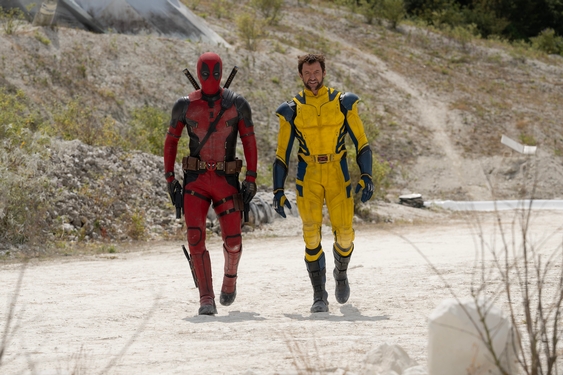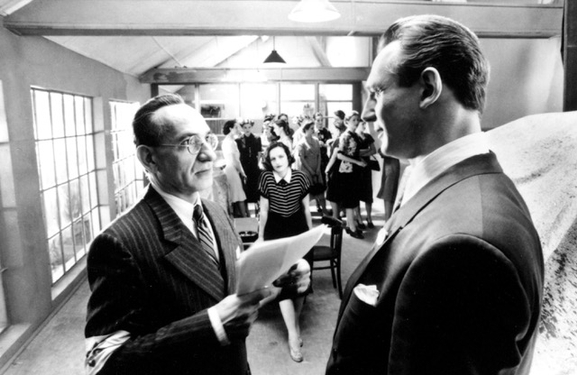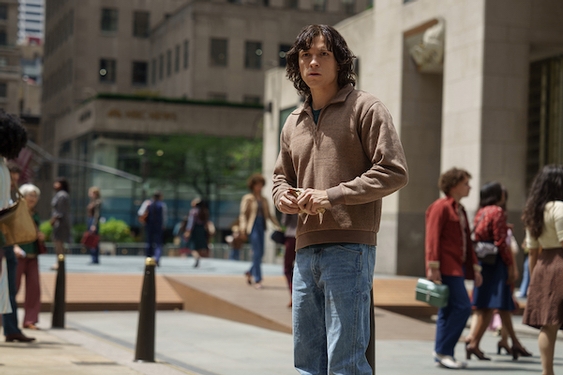“Birdman” won big Sunday at the Oscars, in a triumph of highly noticeable, kinetic filmmaking over the light-fingered “invisible” technique of its primary competition, “Boyhood.”
“Birdman” contained little, if anything, to offend anyone. No serious provocations, no politics, just an entertaining swirl of movement and, for the Academy Awards voters, a relatable tale of a washed-up superhero’s Broadway redemption in a play that pushes him to the edge.
Going into the weekend, oddsmakers and pundits considered the race a close call between co-writer and director Alejandro G. Inarritu’s dark comedy and “Boyhood,” writer-director Richard Linklater’s gentle coming-of-age masterwork made over a period of 12 years.
Recently a partner in the PricewaterhouseCoopers accounting firm told Tribune Newspapers that because of the preferential voting system adopted six years ago, often “it’s the movie listed third, fourth or fifth on a great many ballots that ends up winning.” In other words, the film with the broadest support gets the Oscar, not necessarily the one with the most first-place votes. We’ll never know the voting tally.
But in a year of historical biopics and endless debates about what any fictionalized true story owes its subjects, “Birdman” blew past the arguments and went its merry, whirling way. It was rewarded, in the end, for being a good time with a whiff of magical realism.
Each year in the weeks leading up to the Oscars, the same discussion of fact vs. fiction in historical biopics recurs, with new titles in the mix. In “Selma,” the scenes between Martin Luther King (David Oyelowo) and Lyndon Johnson (Tom Wilkinson) stray from what many feel is the indisputable historical record about the nature of the LBJ/King relationship.
“American Sniper” offers its own, heavily fictionalized version of the real-life Navy SEAL sniper Chris Kyle; “The Imitation Game” and “The Theory of Everything” tell some of the truth of their subjects, but do the usual thing biopics do, inventing conflicts, ginning up crises for dramatic effect, conflating or combining events and characters.
The Oscar roster this year had all that in one corner. And then, in the other, the fabulists: “Whiplash,” with its rip-roaring, feverish take on familiar mentor/student scenarios; “The Grand Budapest Hotel,” set in a wholly fictional country and a Neverland of nesting-doll storytelling. Above them all, at the Oscars at least, came “Birdman,” which has very little to do with the real world, but everything to do with creative egos and hermetic artistic pursuits. This year, that seemed right and preferable to the Oscar voters. It was a movie that believed in actors, and forgave everyone’s flaws, and knew how to put on a show.
Many, I suspect, share my feelings about “Birdman” and were secretly or openly wishing “The Grand Budapest Hotel” would’ve scored an upset. Instead “Grand Budapest” made do with four awards. “Birdman” tied with four, but they were four biggies: picture, director, original screenplay and cinematography.
Eddie Redmayne won best actor for his technically impressive and emotionally resonant portrayal of “Brief History of Time” visionary Stephen Hawking in “The Theory of Everything.” For many months leading up to Sunday’s Oscar ceremony, Michael Keaton, nominated as the beleaguered onetime superhero attempting Broadway redemption in “Birdman,” was considered the front-runner in this category. Then last month, Redmayne took home the Screen Actors Guild prize, often an indicator of the best actor Oscar winner. It certainly was this year.
Why did Redmayne win over Keaton? In the end, again, a triumph of the highly visible over the easygoing and naturalistic. To play Hawking at various stages of neuromuscular degeneration, across many years of screen time, Redmayne mustered all the technical, physical and emotional facility he had within him. It worked; he proved he was the right actor for the job, and some of us were surprised at just how good he was.
Keaton’s assignment in “Birdman” was very different. Playing a sly version of himself, or at least his own resume, the onetime screen Batman who suffered some career neglect in the wake of his blockbusters portrayed an actor who suffered career neglect in the wake of his blockbusters. At the center of “Birdman,” Keaton’s Riggan Thompson ate it at the expense of all the characters getting in the way of his career comeback.
This, I think, is why Keaton didn’t win the Oscar Sunday. The role in “Birdman” is essentially reactive, waiting for the next supporting player (Emma Stone, Edward Norton, etc.) to deliver another blistering monologue in his general direction. “Birdman” may be unthinkable without Keaton, but it’s not a showy performance, even when Keaton takes to his tighty-whities in Times Square. Redmayne’s performance, like so many across Oscar history, is a tour de force of technique.
Julianne Moore’s win in the best actress category for “Still Alice,” in which she played an early-onset Alzheimer’s patient, was as widely predicted as the prizes in the supporting ranks for Patricia Arquette (“Boyhood”) and J.K. Simmons (“Whiplash”). No provocations or politics there, simply heartfelt support for a solid, versatile performer.
I’ve heard from plenty of people who never did understand the praise for “Boyhood,” the most conspicuous loser Sunday, even though Arquette won for supporting actress. To many Oscar voters, it likely seemed as foreign as any of the foreign language feature nominees. “Boyhood” moved at its own pace, unconcerned with underlined story beats and major crises. “Birdman” was a comedy about artistic crisis, albeit a weirdly humorless one. The look of the film, with its stitched-together long takes and leaps into the fantastic, made it seem fresh. The ideas in it were less so, but a lack of ideas never stopped anybody from winning an Oscar.
Neil Patrick Harris hosted and scored some effective zingers regarding the whiteness of the nominated acting pool and other political issues. And then, with each of its four wins, “Birdman” said: Forget all that. Just sit back and enjoy a movie about rampaging egos and backstage torments.
Gentleness and nuance is a tough one-two combination at the Academy Awards. “Boyhood” found that out Sunday.
———
©2015 Chicago Tribune
Visit the Chicago Tribune at chicagotribune.com
Distributed by Tribune Content Agency, LLC












